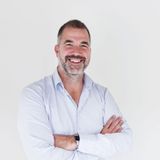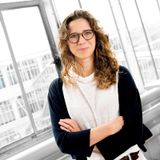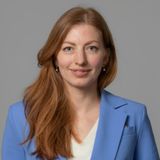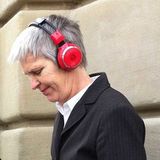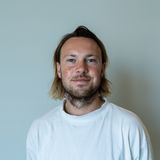The week of February 19, 2024 will mark exactly 10 years since Russia started a war on Ukrainian territory. In a decade, hundreds of thousands of buildings have been destroyed by warfare. As the war in Ukraine continues unabated, planning, designing and developing new infrastructure and housing is needed to work towards improving living conditions. This evening we will discuss this further and try to answer the question with Dutch and Ukrainian guests; what is needed to rebuild Ukraine and how do you do this?
About the speakers
Patrick Meijers is an architect and partner at Orange Architects. In 2010, Patrick founded Orange Architects, first as a joint venture between 3 Dutch architecture firms, for projects abroad, from 2013 as an independent firm. Patrick Meijers has participated in several national and international workshops and has been a guest speaker and critic several times. In his work, Patrick has carried out several projects in Ukraine. Since 2 years, he has been involved in the UNUN network.
Oleksandra Tkachenko is an urban planner at KuiperCompagnons. She has been involved in various projects working on the reconstruction of Ukraine since the beginning. Oleksandra is one of the driving forces of Ukraine – the Netherlands Urban Network (UNUN). This is a growing community of Ukrainians in the Netherlands, Dutch architecture and spatial planning organisations and other spatial professionals. They have joined forces to exchange knowledge in the context of Ukraine’s reconstruction. They seek to use joint brainpower to meet the challenges of a sustainable and liveable reconstruction of Ukraine. The UNUN network responds to urgent needs such as job search, knowledge exchange and capacity building.
Julia Soldatiuk-Westerveld is a Research Fellow in the EU & Global Affairs Unit at the Clingendael Institute. Her research focuses on contemporary political, economic and security issues in Eastern Europe, with particular attention to post-war reconstruction and security sector reforms in Ukraine and the Ukrainian EU integration process. Before joining Clingendael, Julia worked for VNG International and PAX, where she advised national and local governments in Eastern Partnership countries (Ukraine, Georgia, Armenia), Egypt, Turkey and Kosovo on topics ranging from EU accession support and decentralisation reforms to post-conflict recovery, peacebuilding, IDP management and civil society strengthening.
Lilet Breddels is an art historian and lives and works in Amsterdam. She is director of the Archis Foundation, a cultural think tank promoting the debate on spatial and urban urgencies and publisher of Volume Magazine. Archis initiates projects, exhibitions and debates around the world. Breddels is a guest lecturer, curator and teacher, mainly on issues related to the intersection of art and architecture and their role in society. Among other things, she teaches at the Amsterdam Academy of Architecture. And specialises in architecture in post-conflict areas. Since two years, she has been involved in Ro3kvit. Ro3kvit is a Ukraine-based project with foreign backed project based in Ukraine. All experts have experience in developing projects in Ukraine or in post-conflict planning. At least 50% of the team members are Ukrainian experts. Among them are researchers, designers, policy advisers and teachers.

The war in Ukraine has left many of its cities in rubbles and has affected millions of people. A growing community of Ukrainians in the Netherlands together with Dutch organisations and spatial professionals, have started the UNUN initiative to start thinking about the reconstruction of the country.

De oorlog is nog in volle gang. Toch is architect en stedenbouwkundige Fulco Treffers samen met een Oekraïens netwerk nu al druk bezig met de wederopbouw van het land. ‘Aan snelle, cosmetische oplossingen heb je niets.’

